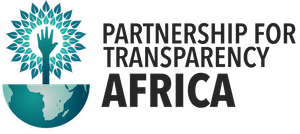Emphasizing locally-led approaches, our programs focus on citizen action on the most pressing issues in their communities – from access to medicine to road construction, water supplies or public schools. Through technical and financial assistance, PTF and its affiliates have supported the efforts of more than 250 CSOs across the globe. Our universal principles, adaptable methods and knowledge resources make our approach applicable in communities far beyond our scope.
PTF-Africa works to develop innovative solutions and creative ideas that help to equip youth and their communities to demand accountability in the realization of their rights. Rather than being reactive, these programs are about creating a culture of engagement that prevents governments from failing to deliver upon their obligations for the world’s most disadvantaged children and youth.
Gender based violence (GBV) is widespread in Africa, with more than 45% of women experiencing one or more incidents, compared to a global average of 35%. South Africa has some of the most progressive and comprehensive laws and policies in the world to promote gender equality and support those affected by GBV seeking legal recourse. However, a 2011 study estimates that only 0.3% cases are reported. PTF-Africa supports local CSOs working to increase access to and improve the quality of redress services for those affected by GBV and discrimination.
Buying and selling by public agencies offers endless opportunities for dishonest officials to make money. With large contracts the amounts skimmed off can be huge—in some cases tens of millions of dollars. PTF-Africa helps local CSOs can play a key role by providing this external oversight, complementing, not replacing, any official mechanisms to track and check the performance of the public procurement and tendering agencies.
Evidence confirms that engaging civil society in development projects can help produce improved, and better sustained, development results. The PTF-network has the relevant knowledge, experience, and network of Advisers and to assist MDBs with the development of strategies to improve CSO engagement. We have produced reports and made recommendations to the World Bank and the AfDB on making civil society engagement more effective in their project, strategic and analytical work.
In Africa, government service delivery is often compromised by the absence of accountability and oversight at the local level, creating a situation rife for corruption. We believe that the patients at public health facilities are best able to identify the maltreatment, waste and corruption they confront. Our innovative approaches put citizens first. PTF supported projects have monitored the provision of overall public health services at the local level, such as the procurement and provision of drugs to clinics.
The cost of corruption is in education is high. The end result is limited access to – and poor quality of – education, and a social acceptance of corruption through a corrupted education system. PTF projects in education have addressed problems of governance, poor transparency and corruption in four main areas: (i) use of school resources; (ii) school construction; (iii) procurement and delivery of textbooks and other school supplies; and (iv) professional misconduct related to student admissions, examinations and teacher hiring.








